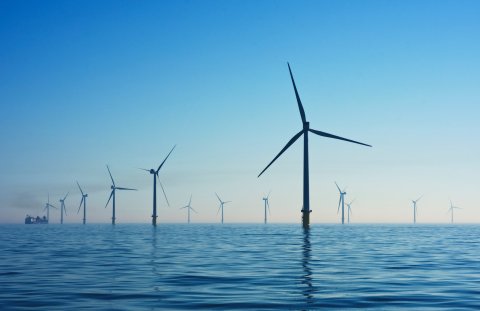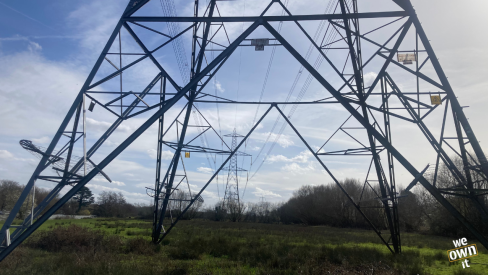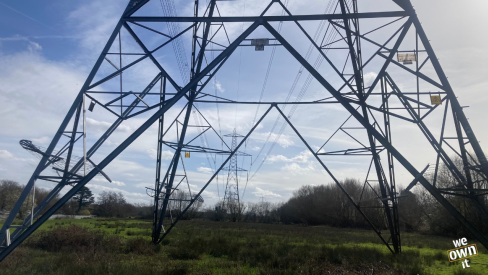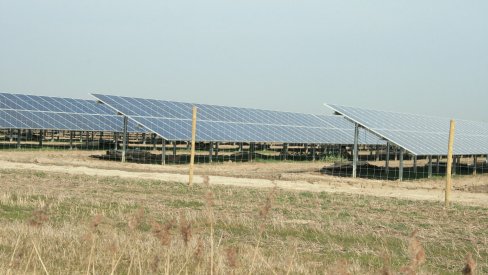
27 July 2022
Yesterday in the Guardian we pointed out that the Labour Party is missing a trick by failing to commit to public ownership of energy. In particular, there are two policies it could commit to at zero to very low cost - creating a public supplier AND creating a state owned renewable generation company.
Countries all around the world choose to use public ownership of wind, water, solar and geothermal power as a tool - especially those who are climate leaders. State owned energy generation can speed up the green transition while creating jobs, boosting the economy and returning a profit right back to that country.
Below is a list of the top 10 countries in the world who are leading the energy transition to renewables.
9 out of 10 of them have something in common - a publicly owned renewable energy generation company. One country on the list has chosen NOT to create such a company. Guess which?
- Sweden owns 100% of Vattenfall, one of Europe’s largest producers of electricity and heat.
- Norway owns 100% of Statkraft, Europe’s largest renewable energy producer.
- Denmark owns 50% of Ørsted, the global leader in offshore wind.
- Switzerland (the cantons of Northeastern Switzerland) owns 100% of Axpo, the country’s largest producer of renewable energy.
- Austria owns 51% of Verbund, the largest and climate-friendliest producer of electricity in the country.
- Finland owns 50.76% of Fortum, the 3rd largest CO₂-free power generator in Europe.
- The United Kingdom has no publicly owned energy company. It allows other countries and private corporations to make the most of its wind and wave power.
- New Zealand owns 51% of Mercury, which generates 100% renewable energy for the country.
- France will soon own 100% (previously 84%) of EDF, a world leader in low-carbon electricity generation.
- Iceland owns 100% of Landsvirkjun, the country’s largest electricity generator.
The UK could easily create a new publicly owned company to generate renewable energy. Setting this up would be good for our economy and the climate - while giving the government control over creating good green jobs and using procurement to maximise the benefit to the country. Public ownership also makes it easier for states to invest quickly without waiting on the private sector.
Evidence from the MIT Center for Energy and Environmental Policy Research shows "a consistent pattern concerning the role of ownership on renewable energy investment among European utilities: state-owned utilities dedicate higher shares of investments to renewables, particularly in countries with stringent climate policies and when the general quality of regulation is high". Research from Mariana Mazzucato shows that "public investments not only have a positive but also consistently the largest effect on private investment flows relative to feed-in tariffs, taxes and renewable portfolio standards in general".
Around 50% of UK offshore wind is publicly owned right now, but only 0.07% of it is publicly owned by the UK. This is a huge missed opportunity, especially for a country with our geography.
We could choose to profit from our own natural resources and coastline - and maybe get to the top of the list of world leaders!












Comments
Marion WALTER replied on Permalink
If only others would take the trouble to sign than with 1 million plus signatures that would surely persuade others to so too.
Simon Lambert replied on Permalink
I think it is important to state that many of the UK utility companies are owned by nationalised or part nationalised companies from other countries. The other issue of concern is that the UK, as I understand it, has no requirement at board level for national representation by a UK citizen. https://www.rapidformations.co.uk/blog/can-uk-company-directors-based-overseas/. This is obviously a huge risk for utility companies if the board members have no national interest.
Jonathan Chambers replied on Permalink
This country is becoming a shambles in which the poor are increasingly subsidising the wealthy.
Jennifer Lilley replied on Permalink
All utilities should return to public ownership. It's outrageous that shell energy give you 3 p for solar energy fed into the grid and then charge you 38 p to get it back
Add new comment